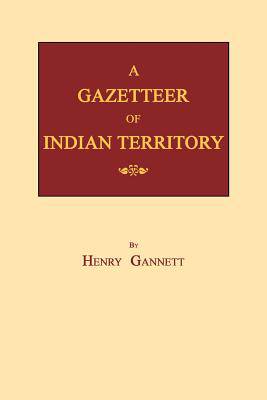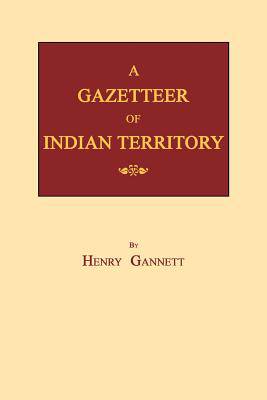
- Afhalen na 1 uur in een winkel met voorraad
- Gratis thuislevering in België vanaf € 30
- Ruim aanbod met 7 miljoen producten
- Afhalen na 1 uur in een winkel met voorraad
- Gratis thuislevering in België vanaf € 30
- Ruim aanbod met 7 miljoen producten
Zoeken
Omschrijving
United States Geological Survey 248, Series F, Geography 44. A gazetteer is a geographical dictionary or directory used in conjunction with a map or atlas that can provide detailed information about dates, locations, settlements, county boundaries, population, and more. For the historical or genealogical researcher, they are especially useful when attempting to locate an ancestor or an event in a given location years prior, but that named location is no longer shown on maps or in recent literature. This work contains an extensive list, arranged alphabetically, of Indian Territory place names including villages, towns, cities, counties, post villages, rivers, creeks, tributaries, mountains, and other topographical information. Indian Territory is situated in the south-central part of the United States, between latitudes 33° 25' and' 37° 00' and between longitudes 94° 25' and 98° 00'. It is bounded on the north by Kansas, on the east by Arkansas, on the south by Texas, and on the west by Oklahoma. The area of the Territory is 31,400 square miles. The great body of the Territory is divided among five tribes-the Cherokee, whose reservation is in the northern part; the Creek, in the central part; the Seminole, just west of them; the Choctaw, in the southeast; and the Chickasaw, in the southwest. On these reservations the people have developed a considerable degree of civilization and have been long known as the Five Civilized Tribes. Besides these there are a number of small tribes who have reservations grouped in the northeast corner of the Territory. These are: Quapaw, Peoria, Modoc, Ottawa, Wyandot, and Shawnee. The Cherokee, Creek, Choctaw, and Chickasaw were removed from the South to this Territory about 1833. The Seminole, who came from Florida, were, after a costly war, removed to their present reservation in 1845. Each tribe has its own system of government, which is patterned in many ways after our State governments, with a governor, a legislature, and judiciary of their own. The total population of the Territory in 1900 was 392,060, of which not less than 302,680 were whites, 52,500 were Indians, and 36,853 were negroes, either former slaves of the Indians or their descendants. Self-Indexed.
Specificaties
Betrokkenen
- Auteur(s):
- Uitgeverij:
Inhoud
- Aantal bladzijden:
- 78
- Taal:
- Engels
Eigenschappen
- Productcode (EAN):
- 9781596410138
- Verschijningsdatum:
- 28/08/2014
- Uitvoering:
- Paperback
- Formaat:
- Trade paperback (VS)
- Afmetingen:
- 152 mm x 229 mm
- Gewicht:
- 127 g

Alleen bij Standaard Boekhandel
+ 46 punten op je klantenkaart van Standaard Boekhandel
Beoordelingen
We publiceren alleen reviews die voldoen aan de voorwaarden voor reviews. Bekijk onze voorwaarden voor reviews.







